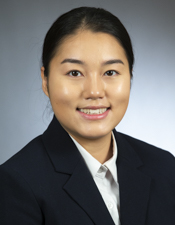Supporters of full-service community schools seek more funding
Full-service community schools are about improving student learning and bridging gaps, and supporters they require continued financial support from the Legislature.
Rep. Samantha Vang (DFL-Brooklyn Center) made an emotional plea to the House Education Finance Committee Tuesday in support of HF3587, which she sponsors. It would appropriate $90 million in fiscal year 2023 to support full-service community schools, prioritizing current grant recipients and schools identified as low performing under the federal Every Child Succeeds Act.
The bill was laid over for possible consideration at a later date.
Under current statute, a qualifying school can receive up to $150,000 annually if it is on a continuous improvement plan or has an achievement and integration plan approved by the Department of Education. No state-funded full-service community school grants have been awarded since $1 million went out in 2017; however, last fall Gov. Tim Walz allocated $5 million of undesignated federal COVID relief funds for grants to schools for full-service community schools.
A full-service community school incorporates aspects of early childhood services; academic support and enrichment activities including an extended school calendar; career counseling and internship opportunities; parent involvement and leadership; mental and physical health support; community involvement; and service learning.
Brooklyn Center Superintendent Carly Baker said an integrated focus on academics, health and social services positively nurtures relationship and helps students explore their identities as individuals.
“We look beyond proficiency measure,” she said.
Joe Sage, Faribault Middle School principal, said the community school program has helped students feel more connected to the institution, enhanced their sense of belonging and improved attendance. “We have seen academic growth,” he said, adding that students have also grown socially and emotionally.
Rep. Sondra Erickson (R-Princeton) wanted to know how compensatory revenue was used by full-service community schools. She said the Brooklyn Center program began without state dollars.
Baker said the funds help hire staff for academic interventions, provide targeted services, and help deal with the post-pandemic situation. Students often spent 10-12 hours at school, she said.
Rep. Ron Kresha (R-Little Falls) highlighted the need for strong academic measures. At a time when schools are facing shortage of teachers, substitutes and school bus drivers money should go to programs with demonstrated success, he said.
Community schools are perfect examples of private-public partnerships, and hence worthy of support, added Rep. Cheryl Youakim (DFL-Hopkins).
The bill’s companion, SF3233, is sponsored by Sen. Jason Isaacson (DFL-Shoreview) and awaits action by the Senate Education Finance and Policy Committee.
Related Articles
Search Session Daily
Advanced Search OptionsPriority Dailies
Speaker Emerita Melissa Hortman, husband killed in attack
By HPIS Staff House Speaker Emerita Melissa Hortman (DFL-Brooklyn Park) and her husband, Mark, were fatally shot in their home early Saturday morning.
Gov. Tim Walz announced the news dur...
House Speaker Emerita Melissa Hortman (DFL-Brooklyn Park) and her husband, Mark, were fatally shot in their home early Saturday morning.
Gov. Tim Walz announced the news dur...
Lawmakers deliver budget bills to governor's desk in one-day special session
By Mike Cook About that talk of needing all 21 hours left in a legislative day to complete a special session?
House members were more than up to the challenge Monday. Beginning at 10 a.m...
About that talk of needing all 21 hours left in a legislative day to complete a special session?
House members were more than up to the challenge Monday. Beginning at 10 a.m...
